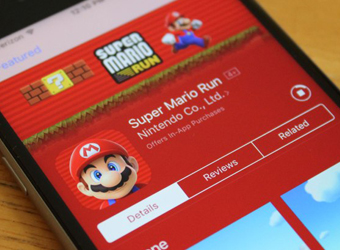Nintendo’s first proper smartphone game has proved to be a huge hit. According to the company, Super Mario Run was downloaded more than 40 million times in its first four days of availability on iOS, breaking the App Store record for number of downloads during that span.
Previous reports pegged the game’s debut at around 2.85 million downloads in its first day, though these are the first official numbers to come from Nintendo.
That success was aided in part by a global launch, that saw Super Mario Run debut in 140 different countries. Nintendo doesn’t say how many players actually spent money on the game; while it’s free to download, Super Mario Run requires a one-time $9.99 fee to unlock the entire game, a relatively high price tag on mobile that has proved a sticking point for many users and investors. However, Nintendo does say that the game managed to reach the top 10 highest-grossing charts in 100 countries.
Since its debut Nintendo has updated Super Mario Run with a handful of small features, including new holiday-themed items for the game’s kingdom building mode. However, the company recently told The Wall Street Journal that it had no plans for any large content updates for the game, either free or paid.
The popularity of the game is obviously good news for Nintendo, as the company is hoping to parlay that success to help its flagging console business. Just as Pokémon Go did previously, Nintendo is hoping that Super Mario Run will push new users to more traditional Nintendo game experiences on the company’s own hardware.
“I feel like Mario was what introduced millions of people to video games and interactive entertainment, and I think that Mario will continue to serve that role,” series creator Shigeru Miyamoto told The Verge prior to the mobile game’s launch. “And I think with Super Mario Run that’s exactly what’s going to happen.” Nintendo plans to follow Super Mario Run with mobile versions of Fire Emblem and Animal Crossing.
Source: The Verge


